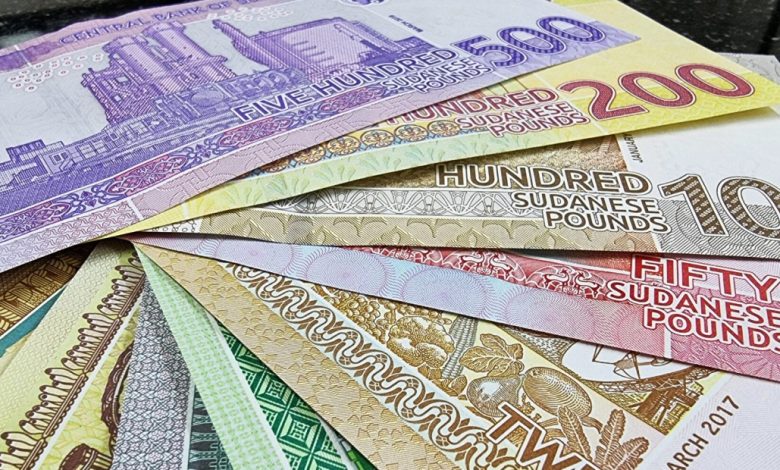Sudanese Pound Facing Bumps Ahead

Report by Nahid Oshi
The Sudanese currency is witnessing a continuous decline against foreign currencies in the official and parallel markets, and the deterioration became more severe following the events of April 15 last year, and its cycle is still ongoing.
It left and did not return
The economic expert, Dr. Kamal Karrar pointed out that the value of the Sudanese pound had deteriorated before the war, as it lost much of its value compared to foreign currencies, but after the war, it “went out and did not return.”
Khader attributed the reasons for the deterioration of the pound to the state of non-statehood, the absence of financial and monetary policies, and the deterioration of the banking system and productive sectors due to the war, which greatly weakened the sources of foreign exchange, at a time when the demand for foreign currencies is increasing, not for import alone, but to cover the costs of travel and residence of thousands of displaced people and refugees in the neighboring countries.
Black market mafia
Karar stated that little of the foreign currency currently available is directed to the security and military sectors, and thus the economy appeared “as naked as was born by its mother “and had given it to the black market currency mafia, which explains the decline of the pound and the rise of the dollar.
He said that the pound will continue to fall, and the prices of goods and necessities will rise steadily as the war continues.
He conditioned the recovery of the local currency on stopping the war and restoring the state, and said that political stability is the key to economic stability, and therefore stopping the war and restoring the state is the path to economic recovery, including strengthening the value of the pound.
The head of the Business Travelers’ Association, Zahir Siddiq, also shared his opinion regarding the necessity of stopping the war in order to revive the Sudanese pound, in view of the deterioration due to the lack of exports, in addition to the plundering of banks, institutions and companies. He said that in light of the continuation of the war, no remedies will work, even if there are revenues from gold or other exports, they will be allocated to weapons and military sector expenses and will not be allocated to economic sectors and the crisis will remain.
Zahir called for speedy development of a plan to change the currency.
Worst cases
Economic expert Abdullah Al-Ramadi limited the reasons for the deterioration of the value of the Sudanese pound against foreign currencies to the stage of chaos and statelessness that Sudan is experiencing now and the unstable security situation as a result of countries conspiring against it. He said in a statement to (Sudan Events):
Sudan is now experiencing its worst condition since the departure of the colonialists, and in light of this situation, the Sudanese pound is suffering from a collapse in its value against foreign currencies due to the cessation of exports in light of the presence of needs for imports, which makes the demand for foreign currencies increase, so their price rises against local currencies, which weaken as a result of the lack of production.
However, he promised the recovery of the local currency as soon as Sudan stabilizes its security situation, and said that at that time it will be able to rise and the Sudanese pound will regain its strength again.
The financial and economic expert, Dr. Alaallah Abdu Razzaq Alaallah considered the performance of the Sudanese economy declined by up to 42% as a result of the confrontations between the Sudanese army and the Rapid Support Militia, which approached its 10th month, one of the most important reasons for the deterioration in the value of the Sudanese pound against foreign currencies, in addition to the high inflation rates present in the markets with a decline of Sudan’s export earnings, compared to the high rates of imports from abroad, as well as the increasing rates of foreign and local capital leaving abroad and searching for safe havens for investment.
Reducing imports
He underlines the need to reduce imports and limit them to necessities only
In his stamen to (Sudan Events), he indicated that there were non-economic reasons that led to the decline in the value of the Sudanese pound, related to the climate, the political environment, the state of chaos, the absence of a state of non-statehood, and the lack of security stability, in addition to the intensification of the speculative market in foreign currency and considering it a safe store of value.
In addition to the decrease in remittances from workers abroad, which are the main source of foreign currencies in Sudan, and their transfer to other countries, which created a large gap in the market.
Stop speculation
Regarding the measures required to limit further deterioration, the Central Bank of Sudan said that it should know the size of the real demand and establish more stringent controls to stop speculation in foreign currencies because of its impacts on the standard of living of the Sudanese.



